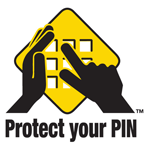Rates
Let your money do the work for you with great rates.
Let your money do the work for you with great rates.
There's more to a credit union than just banking.

We know that strong financial literacy is key to making informed decisions about money.
We offer industry leading business account rates.
Connect with our Business Banking team

Located at 45 King Street East in Hamilton.
Meet our Wealth Team
Our wealth advisors are here to provide expert guidance and support.

We know that strong financial literacy is key to making informed decisions about money.

We know that strong financial literacy is key to making informed decisions about money.

Fraud and identity theft are consistently becoming more advanced and these types of criminals target no one specifically – anyone can become a victim. It's important to be aware of the warning signs to ensure you stay protected, both online and offline.
We take many precautions to protect our domain, website and emails and the same goes with your accounts and personal information. If you suspect any loss, theft or unauthorized use of your accounts, contact us immediately and report the fraud.
At FirstOntario Credit Union, your information security is our top priority. There are some ways you can help ensure even greater security when accessing online account services:
Phishing scams are common forms of identity theft. Criminals try to access to your personal information by disguising themselves as a company or person you trust – like a financial institution. They copy logos, designs and details from actual emails, texts and websites.
Protect yourself by regularly checking your credit score to make sure there are no unusual transactions or credit activity reported in your name (Equifax or TransUnion).
Your debit card and PIN are the keys to your account(s). They are both required to complete a transaction so you should keep them in a safe place and never lend them to anyone. Even if criminals get access to your card, they need the PIN to get access to your money – so remember to protect your PIN.
*Please note: All fraud related reports connected to a financial loss will be thoroughly investigated by FirstOntario Credit Union. Any confirmed failure to protect your password or PAC/PIN information will result in non-reimbursement of funds.

We strongly recommend enabling alerts on your online accounts as an effective safeguard to improve your security and provide added peace of mind.
Simply go into your online account services to set up these helpful alerts.
Contact FirstOntario Credit Union immediately if you suspect someone has gained knowledge of your password (PAC)/PIN, or if you suspect any loss, theft or unauthorized use of your account.
Learn about past and current scams affecting Canadians.
Scams by medium (Canadian Anti-Fraud Centre) ❐
Browse scams by delivery method.
Scams affecting individuals (Canadian Anti-Fraud Centre) ❐
Learn about scams targeting individuals.
Scams affecting businesses (Canadian Anti-Fraud Centre) ❐
Learn about scams targeting businesses.
Slam the scam – Protect yourself against fraud (Canadian Revenue Agency) ❐
Find information about scam prevention and the CRA.
Government of Canada - Get Cyber Safe ❐
Learn more about staying safe online.
Privacy and security • Legal • Accessibility • Market Conduct Code • View all online policies • Site map
FirstOntario Credit Union © Copyright 2026